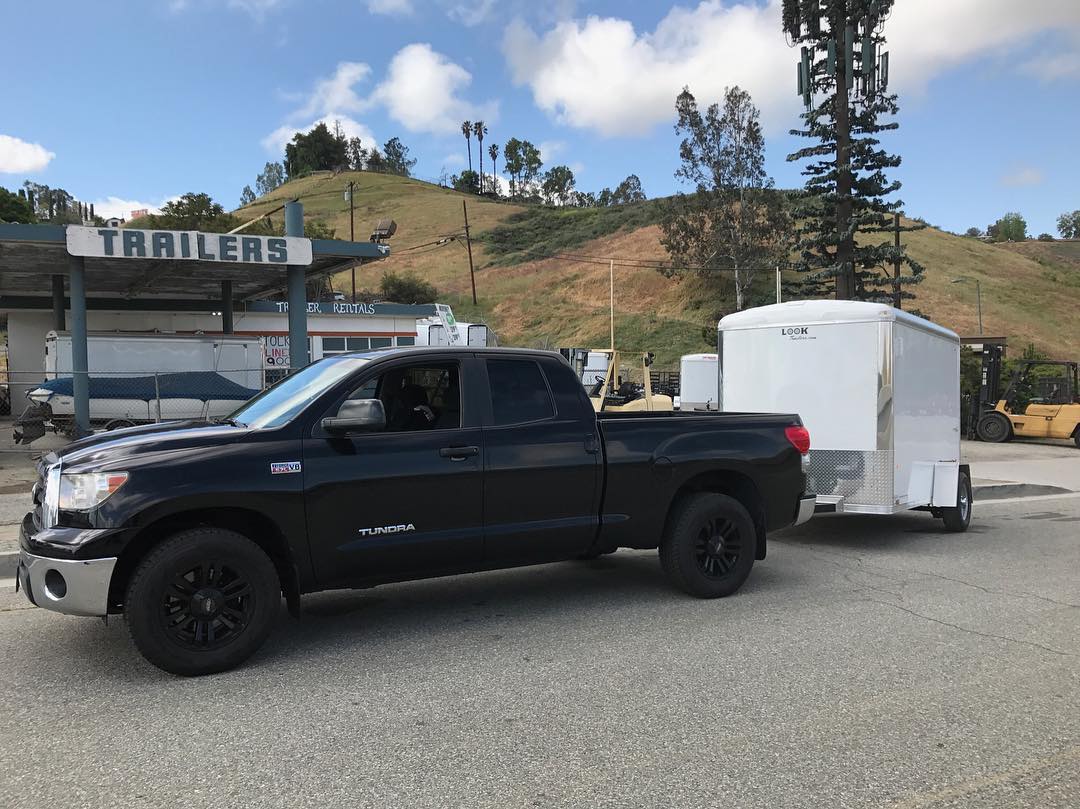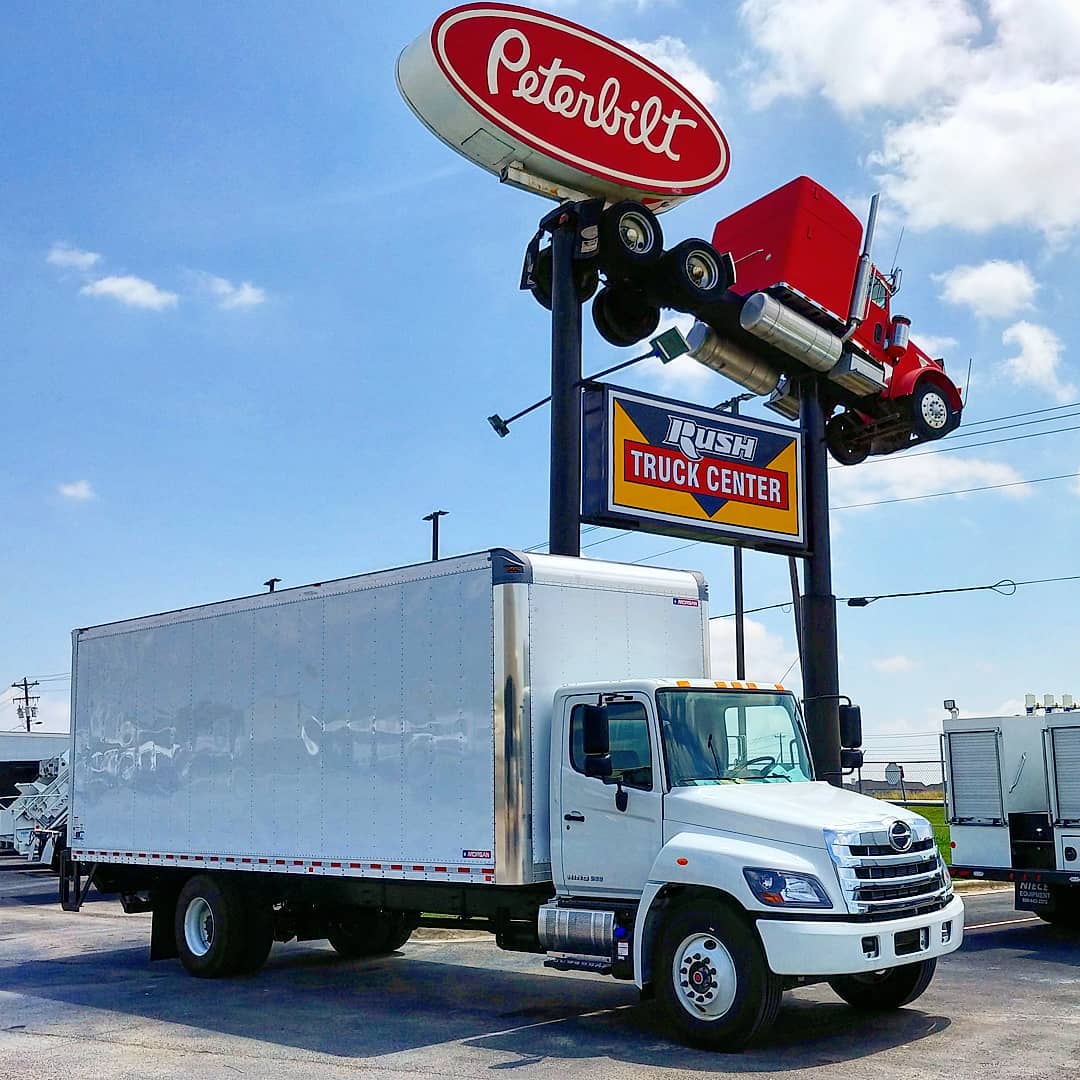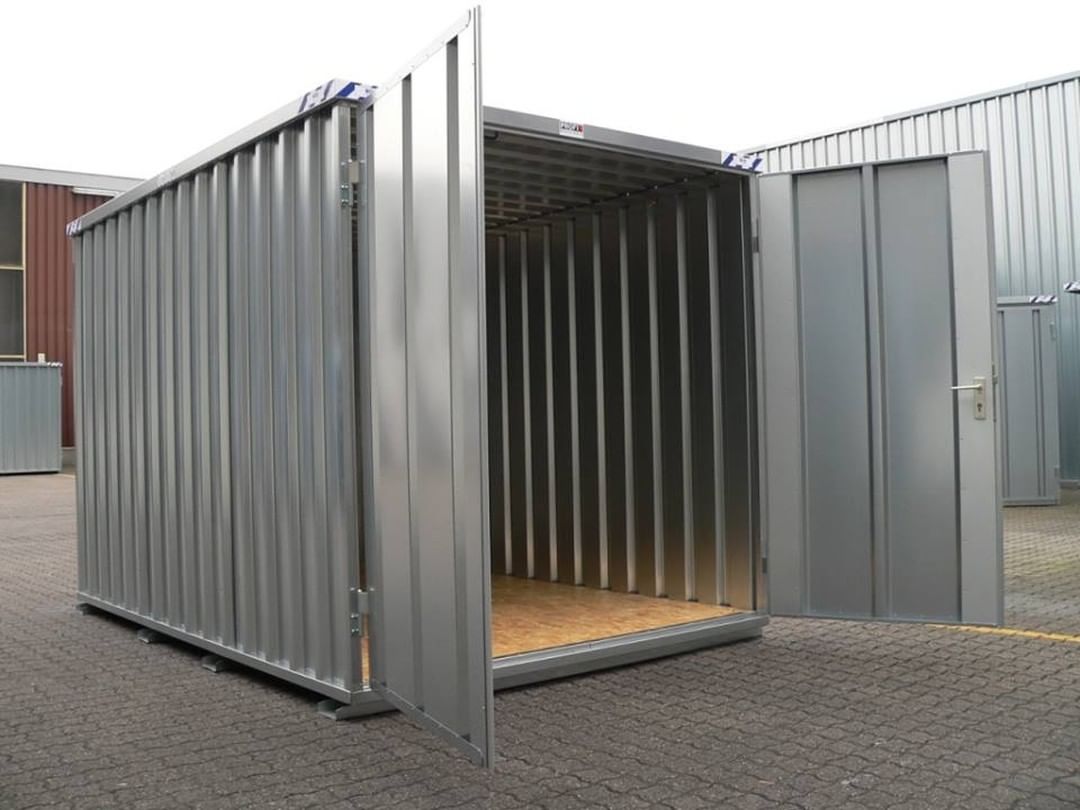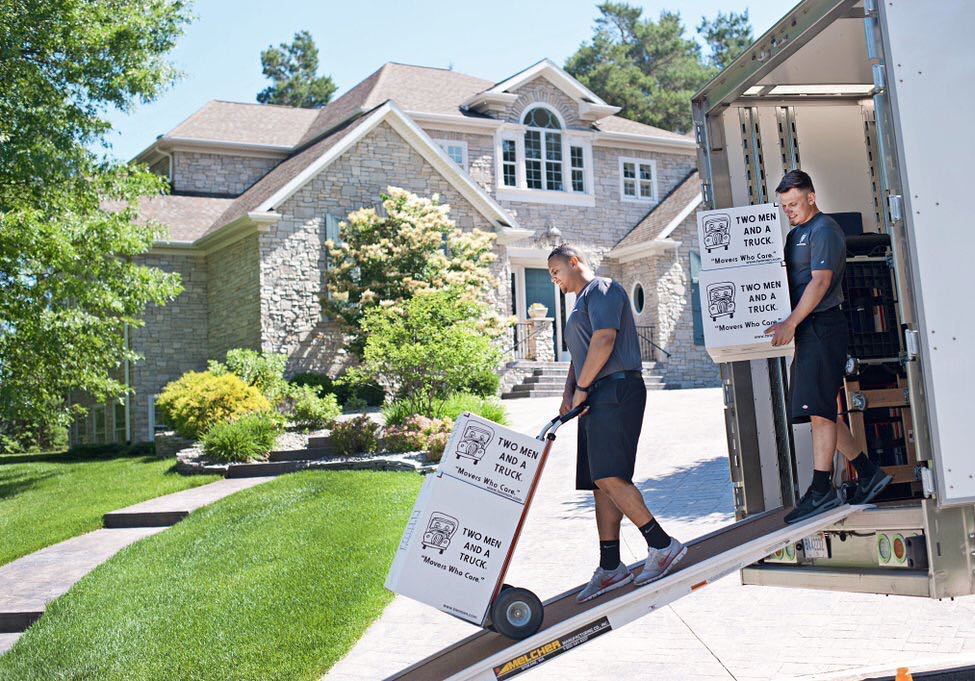If you’re planning a cross-country move, figuring out the most affordable option to transport your belongings can feel overwhelming. Fortunately, whether you want to coordinate your own long-distance move or hire a professional moving company, there are several ways to cut costs. Check out the considerations and benefits to different cross-country moving options to help you decide!
- Haul A Trailer with Your Personal Vehicle
- Move Long Distance with a Rental Truck
- Ship a Portable Container Cross Country
- Hire Professional Movers
- Other Moving Expenses to Consider
Haul a Trailer with Your Personal Vehicle

Photo via @yucaipatrailers
A DIY move across the country with a personal vehicle is the most affordable and flexible transportation option available. However, you may find your personal vehicle doesn’t have enough space for furniture and larger household items, in which case you may need to rent a trailer. Cargo trailers can be rented for multiple days and can be either covered or uncovered. The average cost of renting a cargo trailer is around $15-$75 per day, which depends on factors like the size, location, and type of trailer. Also, keep in mind that towing a trailer will affect gas mileage!
Pros
- You can determine the move completely around your schedule.
- Driving your vehicle means you don’t have to tow or ship it (or make another trip to pick it up).
- You’re able to load and unload items at your own pace.
- Instead of renting an entire moving truck, you can rent a much more affordable cargo trailer.
- Enclosed cargo trailers provide extra protection from unexpected weather conditions while moving across the country.
Cons
- You’re liable for your own belongings and any damages that may occur.
- You may need to have a car, van, or truck that has the towing capacity for a trailer.
- You’ll be responsible for moving your own items.
- You may not be able to fit all of your belongings in one trip.
- Driving cross country can add considerable mileage to your vehicle.
- Parking a cargo trailer can be difficult.
Moving Tips
- If you don’t want to worry about cramming all of your belongings into one personal vehicle or tow trailer, ship larger household goods with a company like uShip.
- Ask for help from your family and friends to save time and money during the moving process.
- To save space when you move, declutter your home and get rid of any belongings you don’t need. Consider hosting a garage sale or selling items on eBay, Offer Up, Craigslist, or Facebook Marketplace to lighten your load and make a little extra cash. You can also donate household goods and furniture to your local LGBTQ center, Habitat for Humanity, Goodwill, or local thrift stores.
- Distribute the weight of your items evenly for easier carrying and smoother travel.
- Position couches, headboards, tables, and rolled up rugs on their sides for stability.
- Use moving straps to keep your items from shifting during transit and load the lightest items on the cargo trailer last.
MOVING RESOURCES
HOW MUCH WILL MOVING COST?Whether you're moving across the street or to a new city, our moving cost calculator can give you an idea of how much your next move will cost.Move Long Distance with a Rental Truck

Photo via @longhornrentalsbuda
If you don’t have a personal vehicle or you have too many items to transport, another affordable long-distance moving option is to rent a moving truck or moving van. When you make your reservation, you can choose to either rent a vehicle for a one-way trip or round-trip. Moving truck rental prices in the U.S. typically range from $1,550-$3,250 for a long-distance move.
Pros
- No personal vehicle is needed.
- You have more flexibility in your moving schedule than you would with professional movers.
- In most cases, the price for the truck rental, insurance, and estimated mileage is built into a total cost for long-distance moves.
- For an additional cost, you can include a trailer or car tow dolly with your truck rental.
- Moving trucks come in a variety of sizes, making it easy to find a size that fits your needs.
- You can rent straps, dollies, floor covers, and other moving supplies with the truck.
Cons
- You have to load and unload the truck yourself.
- Most rental moving trucks get 4-10 miles per gallon, depending on the size, so gas can get expensive fast.
- Driving a moving truck is more challenging than driving a personal vehicle.
- Truck availability and rates can vary depending on the length of your move and the time of year.
- If you go over your predetermined mileage, there could be extra fees.
- Depending on your moving truck insurance, you may be liable for accidents and damage.
Moving Tips
- Get moving estimates from different companies, ask about moving promotions and senior/military discounts, and investigate what taxes and extra costs will be included in the rental price.
- Always opt for the insurance offered by the company. If there are damages to the moving truck or any included equipment, it’ll be much more cost-effective to have insurance coverage than to pay out of pocket.
- Remember to refill the gas tank before you return the truck!
Ship a Portable Container Cross Country

Photo via @modpodportablestorage
A portable shipping container is one of the most convenient options for an affordable long-distance move since you don’t have to worry about the actual transportation of your items. On average, mobile storage containers cost around $1,000-$7,000, depending on factors like storage container size and the business you’re renting from. There’s also usually an additional delivery fee based on proximity, and some companies have a maximum travel distance.
Pros
- The company will deliver the portable shipping container, pick it up, move it across the country, and drop it off, so all you have to do is load and unload it.
- You’ll get to load your items prior to moving day, allowing you to move at your own pace.
- Since you won’t be responsible for moving your items, you can fly, drive, or take a train to your destination.
- Portable containers come in a variety of sizes, making it easy to find a size that fits your needs.
- Some companies may offer warehouses where your container can be stored temporarily while you’re between homes.
- Storage containers are secure and weather-proof, and some companies offer climate-controlled shipping containers.
Cons
- This option is typically more expensive than moving with a personal vehicle or a moving truck.
- Most container companies do not offer moving boxes, dollies, or other packing items.
- It’s not possible to load everything inside, such as plants, food, flammable items, perishable goods, and paint.
- You have to load and unload the container yourself.
- Neighborhoods with strict HOA rules don’t allow portable containers to sit for more than a few days.
- Depending on the container you rent, you may not have temperature control for your items.
- Can run into parking issues when moving.
Moving Tips
- Costs can vary based on the size of the container and how far you’re traveling. Make sure you compare prices from different companies to get the best deal.
- Always get the insurance offered through the company to cover any damages or lost items.
Hire Professional Movers

Photo via @twomenandatruck
While it’s more expensive compared to other cross-country moving solutions, hiring a professional moving company is the most convenient option for a long-distance move. Professional moving companies like Two Men and a Truck or International Van Lines provide full-service moving, even for cross-country relocations. The cost to work with a professional moving company for a cross-country move is around $2,200-$5,700 per truckload. Keep in mind the cost is usually dependent on weight and mileage rather than the hour.
Pros
- You don’t have to load, unload, or transport your items.
- Movers are trained to pack and load efficiently, minimizing damage to your belongings.
- Items like dollies, moving straps, and floor mats are supplied by the company.
- Moving companies run thorough background checks on their movers.
- The costs, while higher, are consolidated into one bill since the moving company is doing everything.
Cons
- This is one of the more expensive options for moving across long distances.
- Since the company loads everything and drives, you don’t travel with your belongings.
- Hiring movers means you may not have as much control over how boxes are loaded into the truck.
- Availability and arrival times may vary depending on the company’s schedule, especially during peak moving season.
Moving Tips:
- Make sure to do your research early and schedule your moving service two to four weeks before your move, as moving companies can book up quickly.
- If you have flexibility with the moving dates for your cross-country move, moving during the off-season can save you money. Peak moving times are weekends, the beginning and end of each month, and the summer. Aim for a mid-week, mid-month move, sometime between October and April.
Other Cross-Country Moving Expenses to Consider

Photo via @newjerseyhalloffame
When moving across the country, it’s important to budget for moving expenses, too. Make sure to keep the following things in mind when creating your budget, and set aside an emergency fund in case of any unexpected dues!
Hotels & Lodging
Be sure to set aside funds for any temporary lodging you may need. The time it takes for a cross-country move depends on the distance to your destination and how you’re moving your items. Budget-friendly motels, Airbnb, and other short-term housing options like Extended Stay America are all great ideas!
Food
Whether you’re driving or flying to your new home, you’ll need to budget for meals. Making your own meals is a great cross-country moving tip to help save you money, and it’s a good way to use up some items from your refrigerator or pantry. Pack some sandwiches, cereal, fruit and veggies, and load up a cooler with water for the road.
Flights
If you plan to fly while your items are being moved in a portable container or by professional movers, there are a few ways you can make the trip more affordable. Buy your tickets about three weeks to four months before your move to lock in a good price, especially if your move is during the summer or holidays. If you have a credit card with airline miles or travel points, consider using those to cut down on travel expenses.
Moving Equipment
Moving boxes, floor pads, closet and wardrobe boxes, and moving dollies can all be rented or purchased from moving companies. Keep in mind that the price of packing supplies can range from $100-$350. Fortunately, there are a few ways you can save money on moving equipment:
- Get free moving boxes from local grocery or department stores.
- Search Craigslist for used boxes and inexpensive packing supplies.
- Check stores like Dollar General, Dollar Tree, or Family Dollar for tape, labels, and other items.
- Save newspapers and grocery store ads to wrap delicate items. You can also use scarves, pillows and pillowcases, socks, or seasonal clothes to protect items.
Self Storage
You may need a storage unit before, during, or after your move. Self storage is available in a range of sizes from as small as 25 square feet to as large as 300+ square feet, with monthly rates that vary based on the size and type of unit. Getting a storage unit is a cost-effective option while you’re in the process of buying a house or renting a home. Securing a personal unit can help you pack items and keep them out of the way before you move.
Short-Term Movers
If you’re driving a personal vehicle or moving truck across the country but need help loading and unloading your belongings, you can hire short-term movers to help with moving labor for around $25-$50 per hour. You can find movers through truck rental companies or websites like Moving Help.
***
Ready to move cross country? Extra Space Storage has storage facilities throughout the U.S. that can help with your transition. Find a storage rental near you!





